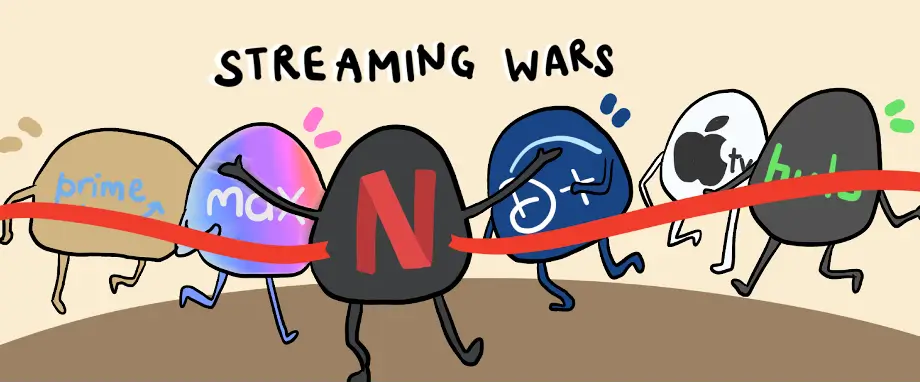In the vast scientific and academic fields, lotology is an area that might not yet be widely accepted; it is a term with enormous potential. Although the notion of lotology is still not defined in mainstream academic journals, it is used by a small group of scientists and researchers within a particular setting. In the article below, we’ll clarify the concept of ontology, look at its roots, review its theories and their applications and consider its possible direction.
History of lotology
Lotology is a term used to describe lotology. It is used mainly in circles of specialized interest to describe studies of structures, patterns, and phenomena associated with lottery randomization, systems of chance, or other forms of chance. Although the concept is not new, the origins of sociology can be traced back to early civilizations, in which lotteries were utilized to aid in making decisions, distribution of resources and even divination.
It is believed that the term lotology was most likely first coined in the 21st century by an ensemble of researchers interested in the interplay between psychology, mathematics, and game theory concerning the lottery system. Since the globe has become increasingly interconnected, thanks to the growth of digital lotteries and the complex systems of randomization across diverse industries and industries, the need to study and comprehend these mechanisms has increased. This led to the formalization of logology as a specialization within statistical studies, behaviour psychology, and economic modelling.
Key Concepts in lotology
In its essence, lotology involves the investigation of chance, randomness, and the mathematical frameworks that support lottery systems and other probabilistic events. In the research of lotology are the following fundamental concepts:
Randomization Theory
Understanding how randomness is created and controlled is a key element of lotology. This involves investigating the mathematical probability behind the lottery draw, gambling systems, and other forms of luck. By studying randomization, lotologists try to improve the fairness and predictability of lottery systems.
Psychology of Luck and Risk
Another aspect of sociology is the study of human behaviour and its relationship to luck. What is the reason the majority of people think that they are lucky? What biases, such as”the “gambler’s fallacy” or “hot hand fallacy”, affect decision-making? This psychological aspect is crucial in understanding how lotteries impact human behaviour and how societies and individuals perceive the risks.
Economic Models for Lotteries
Many sociology researchers focus on the economic effects of lotteries. This involves researching how lotteries affect consumers’ behaviour, social habits, and the public. For instance, governments frequently employ lotteries to generate revenue. Lotology can provide insights into the efficiency and ethical ramifications of these methods.
Game Theory and Strategic Play
Game theory, a well-established sociology and economic science field, plays an integral part in the lottery. Game theory models assist researchers in better understanding the interactions among players in a lottery environment. This applies to real lottery systems and online or digital games of luck.
More to Read: Blogsternation .com
Applications of lotology
Although sociology is a specialized area, its applications are extensive and expanding. Some of the most well-known regions in which sociology is used are:
Lottery System Design
Scientists who study sociology collaborate with the government and other organizations to develop honest and transparent lottery systems that are fair and transparent. This involves ensuring that the system is not subject to manipulation, studying the distribution of prizes and using sophisticated statistical analysis methods to determine fairness.
Digital Lotteries and Blockchain
With The advent of blockchain technology and digital lotteries, lotology has increased its focus on online systems that use cryptographic concepts to ensure transparency and fairness. Due to its distributed nature, blockchain technology has turned into an exciting field of study in the area of lotology, particularly in the context of developing tamper-proof. These verifiable lottery systems are secure and reliable.
Public policy and social impact
Governments subsequently muse lotteries to fund social programs like healthcare or education. Lotology provides crucial information about the efficacy of these programmes, their socio-economic impacts on communities, and the ethical implications of using lotteries as a financing method.
lotology in Modern Society
Lotology is becoming increasingly recognized for its interdisciplinary nature, with scientists from various fields like economics, statistics, psychology, and even philosophy contributing to its development. The advent of the internet has brought a fresh wave of interest in the field, which has led to online lotteries, digital raffles, and blockchain-based games growing in recognition.
The field’s influence isn’t limited to lotteries run by governments. Private companies, educational institutions, and healthcare institutions are beginning to appreciate the importance of understanding the role of chance and randomness in making decisions. As technology advances, the significance that lotology plays will only grow more vital.
Future of lotology
Lotology is likely to grow in scope and significance in the future. The increasing reliance on algorithms for decision-making, the growing popularity of gambling on the Internet, and the study of lotteries as instruments to promote social change all point to a fascinating future that the industry will be able to explore.
Advances in artificial intelligence and machine learning may lead to new methods of maximizing lottery systems and studying complex variations in randomness. Furthermore, further research on the moral consequences of lotteries for society will be an important subject of study.
Researchers are also eager to investigate the relationship between lotology and other disciplines like Quantum Computing and Predictive Analytics. The possibility of being able to influence or predict unpredictable events more precisely poses ethical issues, but it promises new ways of organizing lotteries and related systems.
Challenges and Controversies
Despite its potential, lotology faces numerous problems. One of the major debates surrounding the subject is the ethical issues associated with the use of lotteries to generate revenue, especially in the areas of healthcare, education, and social welfare. Many critics say that lotteries target vulnerable groups and can contribute to social inequality.
Furthermore, the growing complexity of online gambling systems and digital lotteries raises doubts about security, privacy, and fairness. With the incorporation of blockchain and cryptocurrency in lottery platforms, concerns like fraud, security, and regulator oversight have become more crucial.
In addition, the psychological aspect that comes with logology–how people perceive and interact with lotteries may result in irrational behaviour or even problematic gambling behaviours, which call for more focus regarding policies and interventions.
Conclusion
In the end, lotology is an intriguing and ever-changing field that combines the study of chance, math, economics, psychology, and game theory. As the world becomes more dependent on luck, lottery, lotteries, and randomization systems, the importance of studying and enhancing these systems will continue to increase. With its numerous applications, ranging from lottery systems run by the government to blockchain and online gambling, lotology is likely to become a major aspect of how we deal with chance and randomness in our lives.
As the field develops, researchers, policymakers and the general public must understand how to deal with the practical and ethical consequences of lotteries in the modern world. If you do your research and carefully use it, lotology could be a valuable tool for creating more transparent and fair ways of distributing wealth, opportunities and resources.






